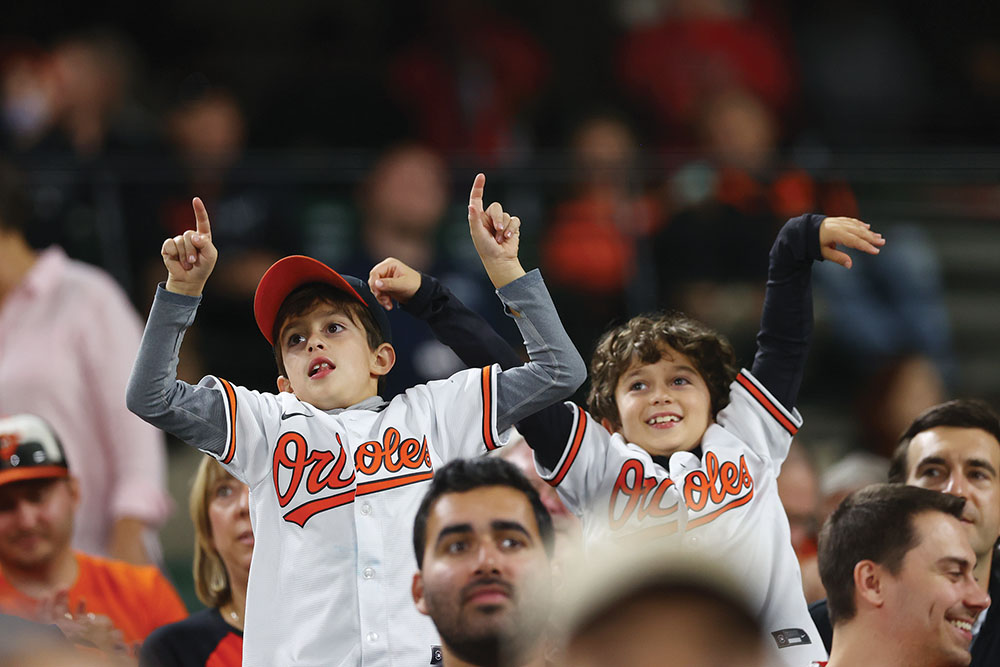My daughter might see my choice as a premeditated act of audacious dissent. After all, she had purchased the mug for me a few years back. I had seen a flutter of panic, then an idea leading to determination (one of her best traits, in my opinion) in her 10-year-old eyes as she asked if I could take her to Walgreens, then requested a little money “for something she needed.” I’ve never been more delighted to pay for my own gift, my own endorsement. Of all the drug store mugs available two days before Mother’s Day, the one she chose was white, black and pale pink, like the inside of a conch shell, adorned with butterflies, and a whimsical, ebullient tagline, “World’s Best Mom.”
 The cup is a bit weathered now, after an unfortunate mishap in the dishwasher. Had this been any ordinary mug, I would have tossed it in the trash. Careful sipping is required because the chip occurred at the weakest point — the lip — and the irony isn’t lost a bit on me. When I discovered the damage, I nearly fell to my knees. The mug and I, partners in crime, feel worn down from daily mistreatment, weakened, with perceptible chinks in the armor. Perhaps I should have hand washed it. I most definitely should have handled it with greater care. Relegated to the top shelf for safe keeping, I place the cup carefully behind an unopened box of multivitamins (bearing the promise, “A better tomorrow starts today!”) for fear that if she sees it, she’ll break it herself in an act of rebellious defiance.
The cup is a bit weathered now, after an unfortunate mishap in the dishwasher. Had this been any ordinary mug, I would have tossed it in the trash. Careful sipping is required because the chip occurred at the weakest point — the lip — and the irony isn’t lost a bit on me. When I discovered the damage, I nearly fell to my knees. The mug and I, partners in crime, feel worn down from daily mistreatment, weakened, with perceptible chinks in the armor. Perhaps I should have hand washed it. I most definitely should have handled it with greater care. Relegated to the top shelf for safe keeping, I place the cup carefully behind an unopened box of multivitamins (bearing the promise, “A better tomorrow starts today!”) for fear that if she sees it, she’ll break it herself in an act of rebellious defiance.
The source of our discord was the acquisition of my daughter’s cell phone after an especially unforgiving bout of oppositional behavior and sassy language. Dreadful words were exchanged from both sides. It was not my proudest parental moment. The stubbornness and determination I’ve always admired in her has lent itself to a different species, a genus I’m unfamiliar with. Since The Cellphone Conquest of 2018, she’s diligently enforced a deliberate exclusion of me in every aspect of her life, a child-imposed matriarchal quarantine. I’m the 6-year-old girl on the playground, and my daughter is the cool kid, surrounded by her friends. My 6-year-old self has asked if I can join in the fun, and she’s replied with, “I didn’t hear anything. Did you guys hear anything? Come on, we’ve got better things to do…” She’s iced me out for a few weeks now. Her ability to maintain this status quo was impressive if not surprising, but now it’s venturing into uncharted, harrowing territory.
The alienation by the same child who just a few short years ago used to plead with me to sleep in my bed, a jumble of fleshy warm limbs, the color of kitten’s ears, and bumpy, pointy knees, a indistinguishable mumble in her sleep, the rise and fall of our breaths inexplicably matching one another. I’d give anything to have a rogue foot jabbed into my side, or entangled limbs, even if the result was an unrestful slumber. This same child who would confide in me, sharing secrets and stories, hours wiled away baking in the kitchen, singing, chortling and dancing around the house. She would be the perfect only child, a petite Mini Me. But now she hates me, the parental pariah. I’ve Googled to see if this type of isolation can indeed crack one’s heart. The verdict is still out.
A friend suggested that I weather this period in my life by choosing to love my teenager in the same way I would love a favorite nephew: You adore him, you recall with fondness the excitement and anticipation of his birth, having relished every developmental milestone. You’re loyal because your nephew is family, but you give him space. You applaud his victories, roll your eyes a bit at his immaturity, shrug off the ebb and flow of clinginess and independence, and you don’t take his bad attitude or personal attacks too seriously. You know you’re family and you’re not going anywhere, because you’re in it for the long haul.
This brilliant plan, with its simplicity and straight-forwardness, offers me solace in a way that no other comment or suggestion has, a salve to the wound. Motherhood is not for the tender-hearted. Mothers don’t often discuss the painful moments. Moments when our best efforts fall short, when we can’t connect with our child despite our best intentions, when our advice falls on deaf ears or isn’t what a child needs to hear, or when we simply can’t help them solve a problem. Then again, sometimes we are the problem. Some of us experience the gut-wrenching realization that from time to time — we didn’t grow up to become the mother we hoped we would be for our child.
This morning I decided to take that precious cup down from the top shelf. I had to remind myself that for years, I performed my mothering in a way that earned her approval. That merited its use. I poured myself some coffee and added a bit more sugar than I normally do, just so it would be sweetest, best cup of coffee I’ve had in a while. As I sat there, sipping, I hoped that time would afford the untangling of mistakes, the patience for understanding, the sustenance for growth. I hoped the stalwart body of my mug would continue to support the more delicate edges so I can keep using it, chipped but functional, imperfect, for years to come.
Maybe someday, when she’s ready, she’ll buy me a new one.










It takes a very strong parent to deal with children or teens who exhibit oppositional defiance. I can really feel her pain and see that as a mom she’s trying to ride out this storm, wanting so much for her daughter to come out whole from this situation. I love that she’s holding on to the mug and hopes that one day her daughter will buy her another.